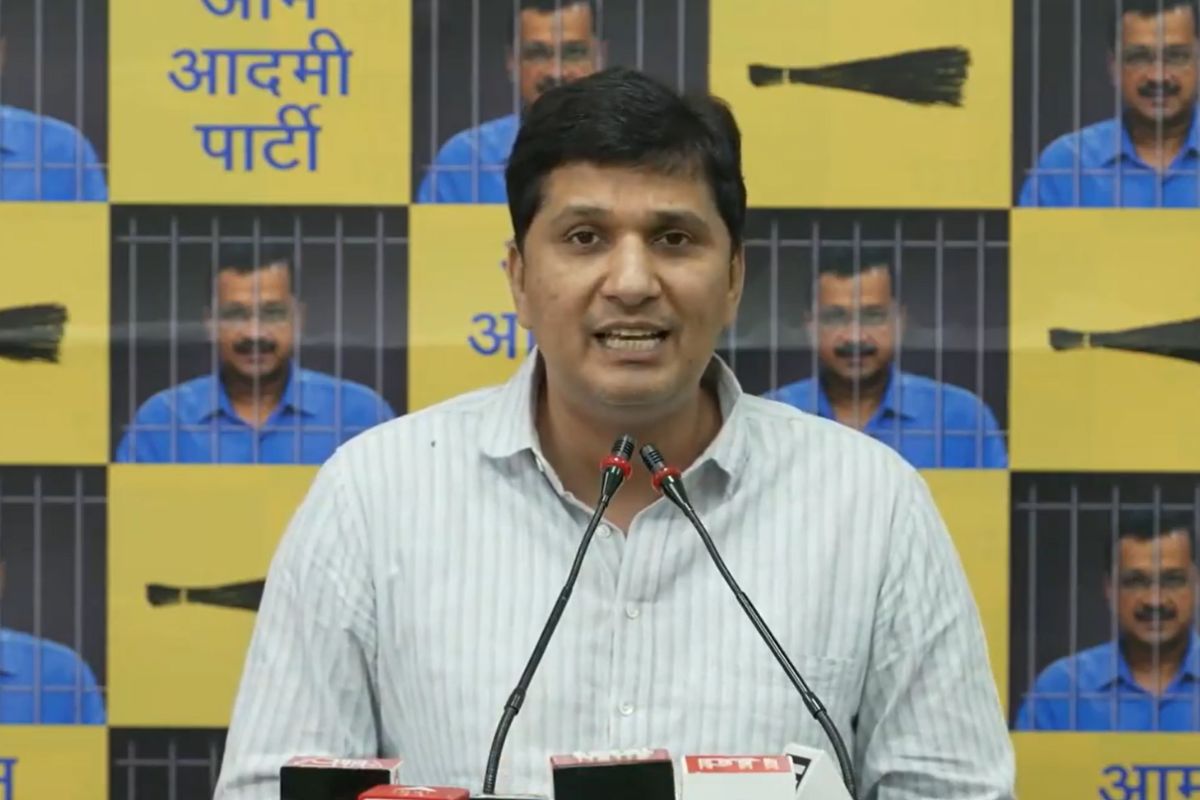Arvind Kejriwal set to resign as Delhi CM today, successor to be announced at Noon
Kejriwal will formally submit his resignation to Lieutenant Governor Vinai Kumar Saxena around 4:30 pm.
Saurabh Bharadwaj chaired an emergency meeting with heads of all major hospitals of the city on heat stroke patients.

Photo: Delhi Health Minister Saurabh Bharadwaj (X/@Saurabh_MLAgk)
Delhi Health Minister Saurabh Bharadwaj on Wednesday chaired an emergency meeting with heads of all major hospitals of the city on heat stroke patients, the city government official said.
Bharadwaj directed the hospitals to scale up the beds for patients with heat related illnesses and said that a fresh advisory would be advertised through radio and newspapers.
In a post on X, the health minister said, “Chaired an emergency meeting with heads of all major hospitals regarding Heat stroke patients.
Advertisement
The Delhi Police beat officers/patrolling teams will be requested to help in shifting homeless to shelter homes in case they are lying under open sky, he said further in the post.
“Department is sending communication to Delhi Police Commissioner to ask their patrolling teams to call Ambulances in case their teams spot destitute is running high fever or sick. Hospitals to scale up the beds for patients of heat related illnesses. Circular issued to Hospitals & CATS Ambulance service. Fresh advisory to be advertised in Radio and Newspapers,” Bharadwaj said.
Amidst prevalent heat-wave conditions in Delhi, the LNJP Hospital reported that nine patients were admitted on Wednesday with heatstroke. Of them, four are currently on ventilator support due to critical conditions and multi-organ failure caused by heatstroke.
He added that on June 16, a patient died due to heatstroke.
“Currently, nine patients are admitted in LNJP hospital. Out of the nine patients, four are on ventilator support due to their critical condition and multi-organ failure due to heatstroke. On June 16, a patient died due to heatstroke,” Medical Director of LNJP Hospital, Suresh Kumar, told a news agency,
Further, the medical director of LNJP Hospital advised children and the elderly to avoid going outdoors in extreme heat and recommends consuming 4-5 litres of water a day to prevent heatstroke.
“Timely treatment of heatstroke patients is very important else it can also lead to multiple organ failure. To prevent heatstroke, an umbrella or cloth covering on the head should be used. Children and the elderly should avoid venturing outdoors in extreme heat conditions. Consumption of 4-5 litres of water a day can prevent heatstroke. Our nurses and staff are trained to identify heat stroke patients,” he told the news agency.
Meanwhile, Ram Manohar Lohia Hospital has reported five deaths due to suspected heat stroke while at least 12 people, mostly daily wage labourers, are in critical condition battling for their lives on ventilator support.
According to Dr Ajay Shukla, medical superintendent of the RML Hospital, 11 people were admitted to the hospital on Tuesday with heat stroke, the highest reported in a single day this season. He said that since the beginning of the heatwave about a month or so ago at least 45 people have been admitted with heat-related ailments till date.
“A total of 22 patients have been admitted to the hospital and five have lost their lives due to suspected heatstroke. 12 patients are on ventilators and in critical situation. The majority of patients are labourers who work in extreme conditions,” the hospital official said.
He also added that the main reason for the deaths was a delay in reaching the hospital. “So far we have received a total of 45-50 patients and around 7 people have died since the beginning of the heatwave situation,” he said.
Meanwhile, the India Meteorological Department (IMD) said heat wave to severe heat wave conditions are likely to continue over many parts of North India on Wednesday and gradually abate thereafter due to an approaching western disturbance towards northwest India.
According to the IMD, heatwave conditions prevailed in most parts of Punjab, Haryana-Chandigarh, Delhi, and Uttar Pradesh; in some parts of Himachal Pradesh, Uttarakhand, Bihar, and north Madhya Pradesh.
Advertisement